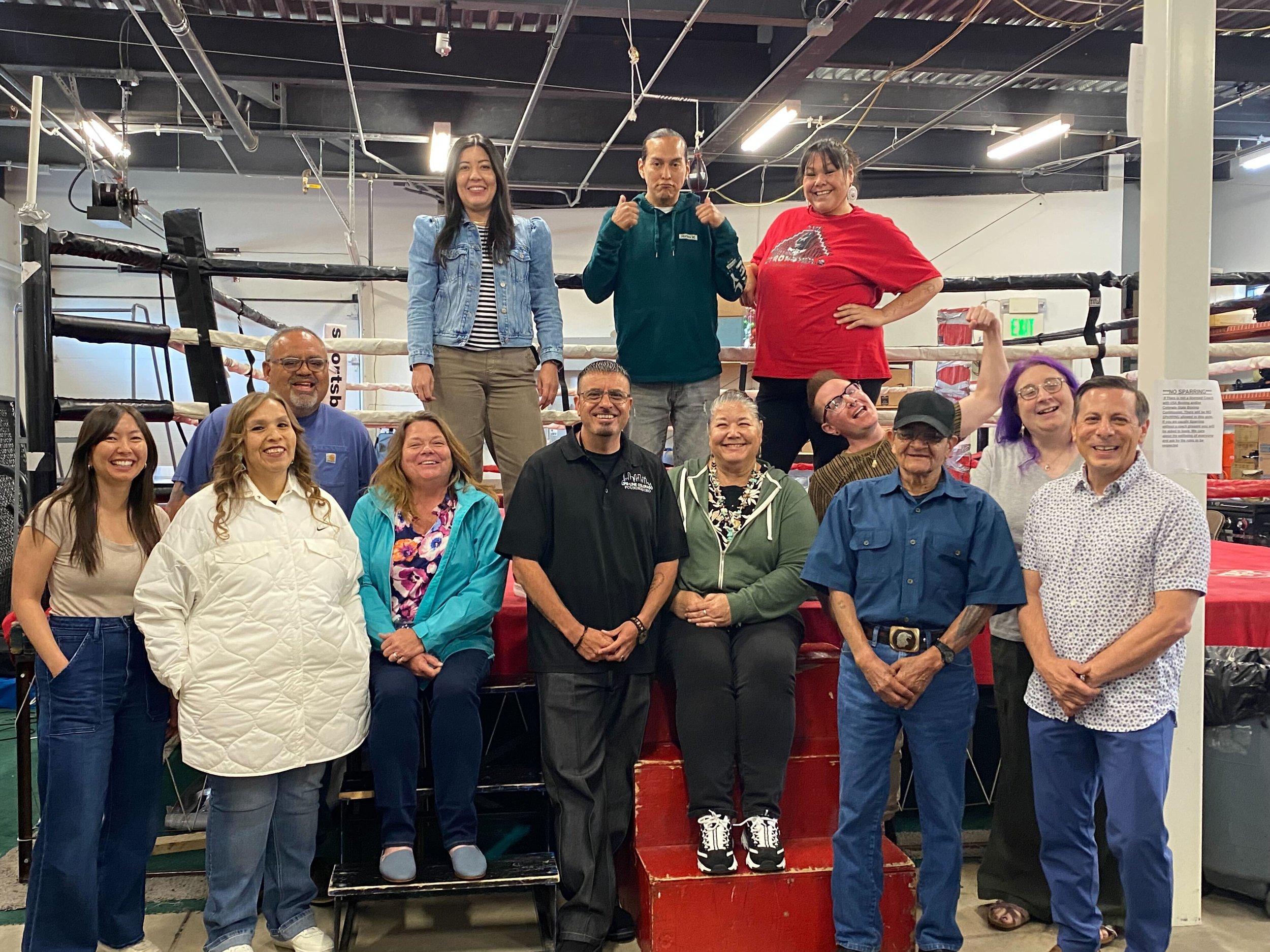JREP Grantees Visit Colorado to Learn from the WAGEES Program
Justice Reinvestment Equity Program grantees visited Life-Line Colorado, which offers boxing lessons to youth and adults.
Oregon isn’t the only state where a government is investing in community-led organizations to reduce incarceration and racial disparities in the criminal legal system. This presents a wonderful opportunity to learn from one another so we can build on successes and avoid repeating strategies that don’t work.
In May, Justice Reinvestment Equity Program (JREP) grantees traveled to Colorado to learn from direct service providers funded by the Work and Gain Education & Employment Skills (WAGEES) program.
On the trip to Colorado, Northwest Health Foundation Program Officer Cleo Tung was joined by staff from JREP grantee organizations Tayas Yawks, Red Lodge Transition Services, The Stronghold and Beyond These Walls. The trip was organized by the Latino Coalition for Community Leadership (LCCL), which provides capacity-building services to both JREP grantees and WAGEES grantees, allowing for valuable insights to be shared among attendees.
We learned about Colorado’s Work and Gain Education & Employment Skills (WAGEES) program, which was first funded in 2014 by the Colorado Legislature and has grown from approximately $500,000 in funding to $8 million. WAGEES funds community-based organizations to work with the Colorado Department of Corrections to facilitate reentry for people returning from incarceration. Currently, WAGEES serves about 1,800 people every year, supporting them to successfully transition back into the community .
LCCL introduced us to impactful organizations like Life-Line Colorado, The Empowerment Program, Second Chance Center and Bridge House. Their services range from meeting basic needs like meals and clothing to providing transitional housing and support for securing permanent housing. They also ensure continuity of treatment from incarceration to release, offer paid transitional work, and provide skill building and access to continued education. These organizations are instrumental to empowering people who have been impacted by incarceration to rebuild their lives.
Some ideas and advice we received during our visit:
Colorado has seen success with organizational outreach videos shown in prisons to educate people about the services available to them.
It's important to tailor services to fit each community's unique needs instead of using a "one-size-fits-all" approach. Recognizing the differences between rural and urban areas, WAGEES gives community-based organizations the autonomy to design localized program models. This flexibility leads to more responsive service delivery and better outcomes for participants.
Tracking data to measure the impact and success of programs is critical for organizations. It allows them to see what is working well and identify areas of improvement. Additionally, this data helps groups tell a powerful story: when community-based organizations act as first responders to people impacted by violence and incarceration, it can make a deep impact. We were grateful for the opportunity to learn more about how groups in Colorado track their data and tell their story of impact.
The organizations we met with underscored the importance of having staff and leadership who reflect the communities being served. This approach helps those receiving services feel more welcome, build trust, and feel empowered to open up and succeed. Groups shared some of the successes and challenges they’ve encountered in ensuring their services are responsive to different cultural communities, including women, LGBTQ+ participants, Black, Indigenous and Latinx clients.
We returned to Oregon feeling inspired and excited to apply our learnings and continue to build relationships with WAGEES grantees and similar programs and organizations throughout the country.
The Justice Reinvestment Equity Program (JREP) supports culturally specific organizations and culturally responsive services in communities most harmed and least helped by Oregon’s criminal legal system. JREP seeks to elevate organizations that have been overlooked by traditional funding streams with the goals of reducing incarceration and racial disparities in the criminal legal system, promoting healing and advancing community safety in Oregon. Learn more about JREP.

